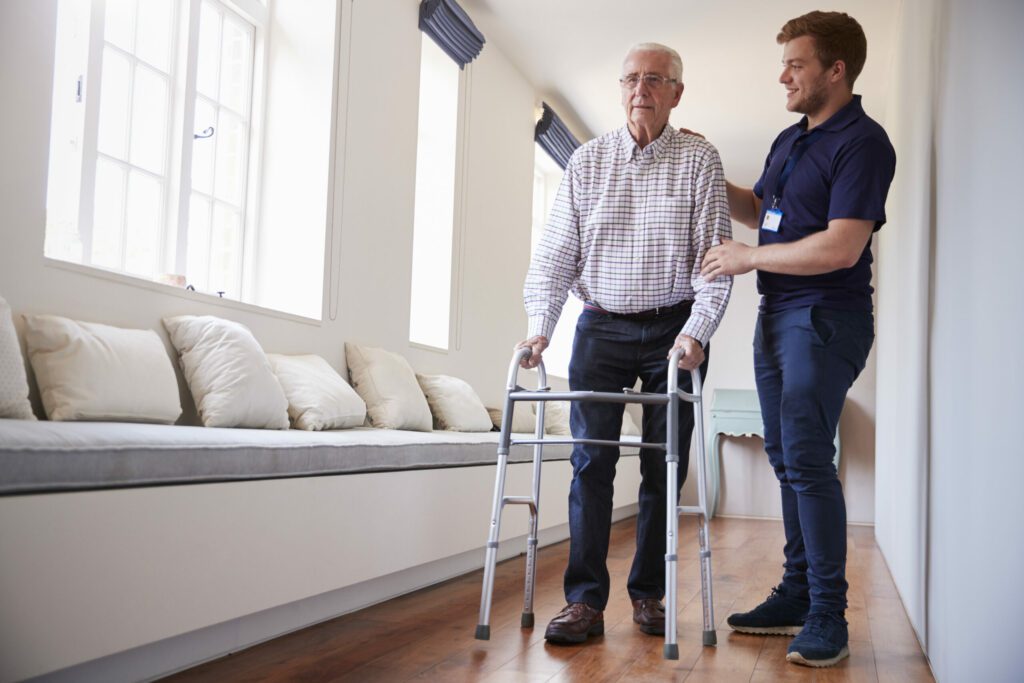11 signs your loved one needs a full-time caregiver.
When an aging parent or loved one needs assistance with the tasks of daily living, deciding what to do can be difficult. Can they get by at home with in-home help, or would they be better off at a personal care, assisted living or skilled nursing community?
If you’re trying to decide what you should do, ask their neighbors and close friends about the 11 signs listed below. For an important second opinion, a social worker or professional senior living care manager can do an informal evaluation.
Watch for these 11 signs:
- Grooming and personal care: Infrequent showering or bathing, unkempt hair, untrimmed nails, lack of good dental hygiene, wearing stained or dirty clothes.
- Neglected household chores: Extreme clutter, unopened mail, piles of dirty laundry, stains or wet spots on carpets or furniture, neglected pet or house plants.
- Changes in mood: Sleeping most of the day, or sudden mood swings from happiness to anger or anxiety.
- Changes in eating habits: Unexplained weight loss, lack of fresh food, stale or spoiled food, skipping meals, multiples of one item or weight gain (forgetting they ate and eating again).
- Forgetfulness: Inability to properly manage their medication, neglecting to turn off the oven or stove.
- Problems with mobility: Difficulty walking or maintaining balance, trouble getting up from a seated position, struggling to go up and down stairs.
- Driving issues: Traffic tickets, unexplained dents or scratches in the car, driving well under the speed limit, difficulty driving to familiar places.
- Financial problems: Unpaid bills, overdrawn bank accounts, calls from creditors, poor financial judgement (ex: falling for scams or sales pitches, giving away money).
- Changes in health: Seems more frail, recent falls, slow recovery from illness, a worsening in a chronic health condition.
- Social isolation: Withdrawing from friends, hobbies and activities, staying home for days on end.
- Your own energy level: Caring for someone in their home can be exhausting. If your spouse or children are feeling the strain, it may be time to consider other options.
While deciding what to do and when can be emotionally challenging, selecting a community that specializes in senior care can help your loved one with their daily tasks, while connecting them with new friends and interests.
If you’d like to discuss your options in more depth, fill out the contact us form on this page or call us at 484.577.3515.



